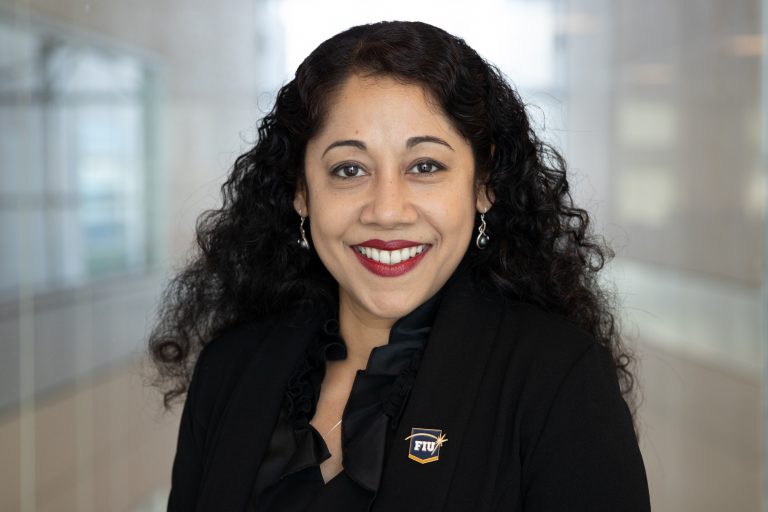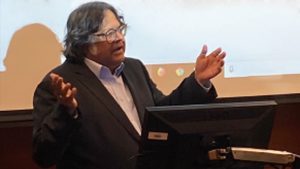By Ashley Nicole Garcia, Office to Advance Women, Equity & Diversity
Suchismita Mishra, professor of finance in the College of Business, is a trailblazer in more ways than one.
Mishra has had a fondness for mathematics and statistics since childhood. Her father was an economist who worked in the state’s financial services for the Indian government and was pleased when she chose economics as a college major.
“My brothers chose to enter the sciences, and my dad really wanted someone to be in his line of work,” she remembers, laughing. She credits her father’s confidence in her as the inspiration for her work ethic and drive to be the best at whatever she set out to accomplish.

Mishra received a scholarship to attend the University of Nebraska, and in a courageous move, left home to pursue her higher education goals in the United States. While there as a master’s student in international economics, she learned the graduate finance department was in need of someone to help teach an introductory course in finance. It was volunteering to fill that need that sparked her love of finance, and she eventually pursued a Ph.D. in the subject. “I love finance,” she says, “because you can apply big theories to the real world. You study how value is created in markets and learn how to create actual worth.”
Her research areas include asset pricing (how to estimate fair value), market microstructure (how trading practices in the market create information), corporate governance (how ethics in corporations and market place), and market efficiency (how to make markets more knowledgeable and equitable for everyone).
Current research projects include looking at the role of alternative investments such as exchange-traded funds in volatile times, how people use alternative investments to manage risk, high frequency trading, Short Selling and how to increase the market efficiency of institutions, which sometimes have less information with which to make decisions than the corporations and insiders.
A clear line runs through her focus areas. “I like to focus on fairness,” she says. “We want to reach a level in the market where everyone has access to information. We want to know how to detect who is trading with unfair information. We want to have the best rules so that all shareholders are happy.”
Mishra is also a dedicated teacher, teaching a number of finance courses. The Ph.D. dissertation seminar and corporate finance are perhaps two of her favorite classes. “I love the material, and there are always great students in the group.” She credits her love of teaching to her love of the material. “I’m passionate about talking about these topics. That passion is important, because it comes through when you teach.”
Mishra came to FIU in 2003. She was the first woman to achieve full professor status in the department of finance at the university. An impressive achievement, the journey wasn’t always easy. “There are always hurdles for women. It’s not an easy experience.”
Now, she does what she can to improve the situation of other female professors at the university. She’s a dedicated member of the Faculty Mentor Program, and is a fervent believer in the power of mentorship.
There’s a great need for mentors. The more we have, the better. I didn’t have an assigned mentor in the finance department, but I had other mentors, such as Dr. Suzanna Rose, who’s such a change maker,” she says. “And there can be a great interdisciplinary nature to mentoring. It’s great to have the opportunity to talk to someone and bounce ideas off each other.
One of her mentors, Danielle Combs, an associate professor in the department of international business, agrees with her mentor about the power of mentorship. “I am a true believer in the benefits mentorship from various people, which is why I jumped at the opportunity to participate as a mentee in the FMP,” she says. “I appreciate Suchi as a mentor because she not only gives good personal and professional advice, but she is also very warm and candid, which makes her relatable and easy to talk to.”
Mishra would love to have more female students in finance, and has ideas for how to increase the numbers. “Undergraduate research projects would be very helpful in attracting women,” she says. “If you had a lab where students got to invest virtual funds, they’d see the fun of it.
Her advice for women who are interested in finance? Even though it’s traditionally been a male-dominated field, “there is no evidence that men perform better in finance or economics. Follow your passion.” She hopes and dreams that someday, what a person does for a living will not be dictated by their gender, but by their passion.




